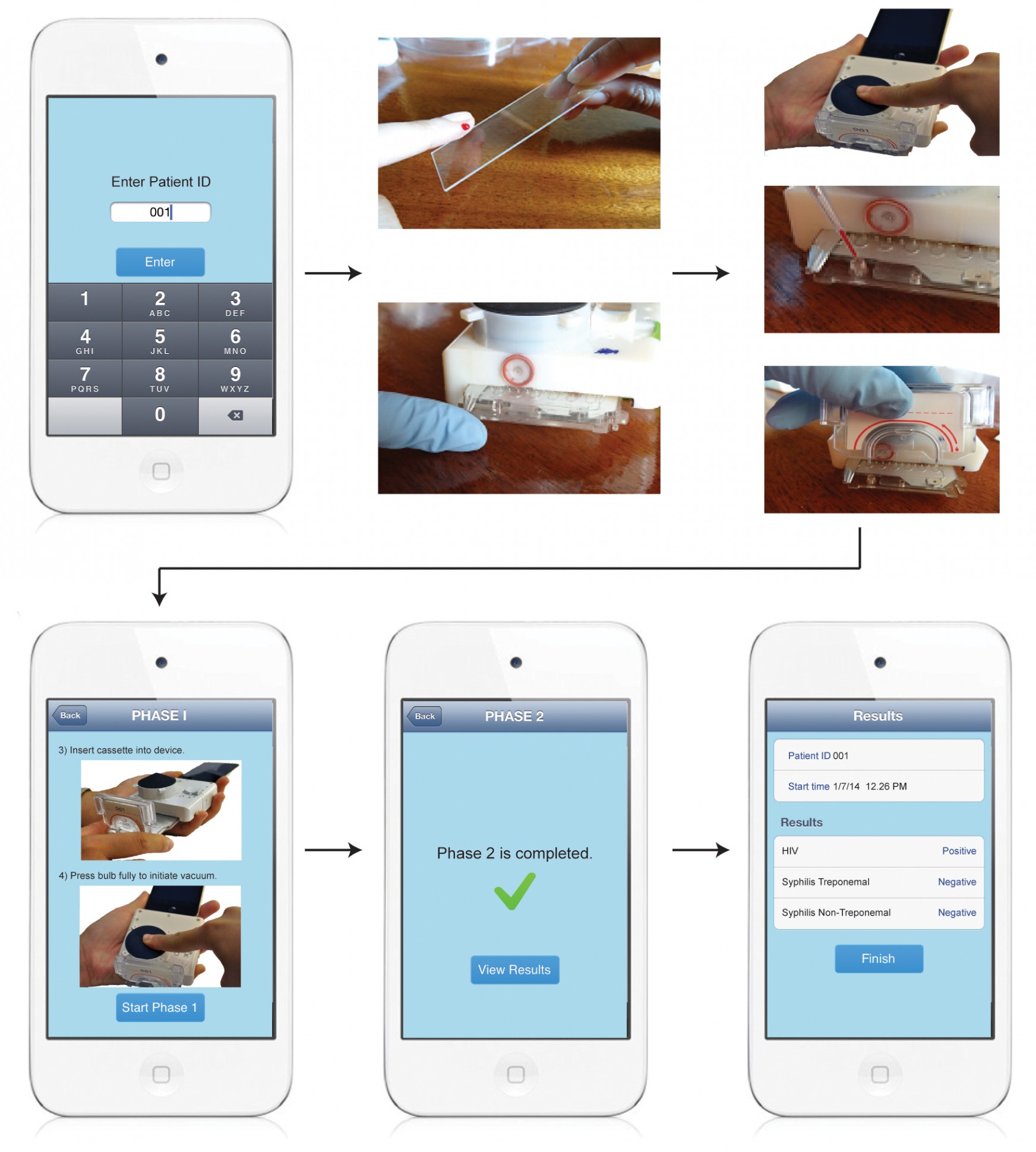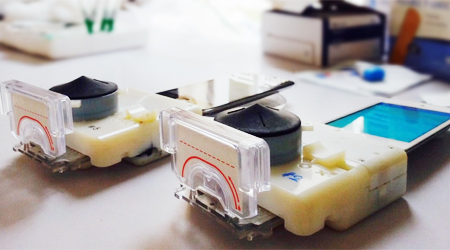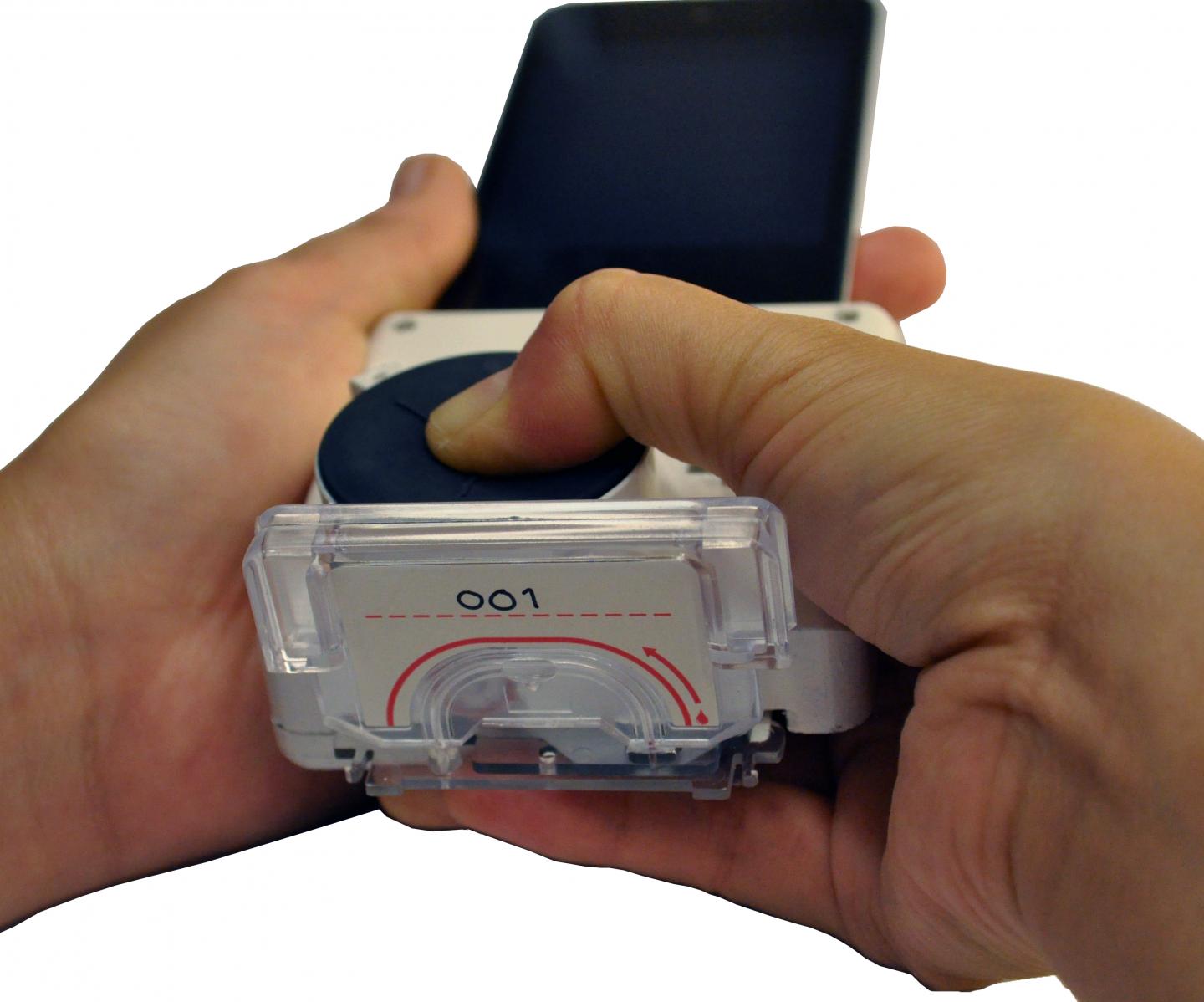Now There's A Way To Diagnose HIV And Syphilis Using Your Smartphone
It's a small dongle that attaches to your smartphone/tablet and has the potential to save millions of lives.
Researchers from Columbia University have developed a device that can test for syphilis and HIV via a smartphone or tablet
Step-by-step illustration of dongle testing.
Image via Forbes with credits to Tassaneewan LaksanasopinRapid, inexpensive, easy to use point-of-care (POC) diagnostic tests are critically important in stemming infectious diseases, particularly in developing countries.
Researchers at Dr. Sam Sia’s Columbia University lab have invented a promising device that can detect both HIV and syphilis and have successfully piloted it in Rwanda.
All it takes is a prick of the finger and just 15 minutes
Smartphone dongles performed a point-of-care HIV and syphilis test in Rwanda from finger prick whole blood in 15 minutes, operated by health care workers trained on a software app.
Image via Samiksha Nayak for Columbia EngineeringThe device—called a dongle—connects to an iPhone or iPad through the audio jack, and it can basically execute the same function as a lab-quality blood test.
In this case, it performs a biochemical test that detects and measures the presence of HIV or syphilis antibodies in the blood. This is the first time this kind of detection process has been consolidated into a single-test format. The dongle doesn’t even need to be charged—it draws power from the phone.
Here's how the dongle works:
The “dongle” device takes a prick of blood and tests it to see whether there are a higher-than-normal number of the antibodies that fight HIV and syphilis in the blood. That immune system reaction indicates that the patient is positive, explains Wan Laksanasopin, a biomedical engineering PhD student at Columbia who helped develop the device.
The dongle attaches to any smartphone or tablet through the audio jack, and the device’s app reads the results, giving a diagnosis in about 15 minutes, Laksanasopin tells Quartz. (The team has so far only developed an iOS app for Apple devices.) The app provides directions to the health care worker administering the test, as well as the results.
Why is this device is important?
HIV Prevalence in Africa – By derivative work: Louis Waweru Talk HIV_Epidem.png: User:Grcampbell (HIV_Epidem.png) [Public domain]
Image via Forbes via Wikimedia CommonsOffering a simple, mobile method to test for HIV and syphilis could make a big difference in developing countries, particularly in helping to prevent mother-to-child transmission of HIV. Syphilis can put a child at greater risk for HIV, and for pregnant women it can cause birth complications or neonatal death, says Laksanasopin.
The mobility of the device means that health care workers can go door to door to provide tests, instead of requiring people to come to clinics, which patients may avoid for reasons ranging from stigma against HIV to transportation difficulties.
Sub-Saharan Africa has nearly 70% of the global burden of HIV-infected people, ~25 million in 2012. That year alone, there were (estimated) 1.6 million new HIV infections and 1.2 million AIDS-related deaths, according to UNAIDS. South Africa has the highest incidence (rate of new infections). Often occuring with HIV infections, syphilis accounts for 20-30% of perinatal deaths in Sub-Saharan Africa.
This new dongle cassette is useful, as it is capable of testing for HIV and doing both types of testing for syphilis all at the same time, with rapid POC testing. Models suggest that POC testing for syphilis might reduce deaths 10-fold, according to Sia. Early diagnosis of HIV is critical for reducing transmission and for treatment, especially in pregnancy.
The dongle costs USD34 as compared to USD18,450 that normal equipment costs, while the cartridge needed for each test costs USD2. Watch this step-by-step demonstration:
According to Forbes, surveys found this type of testing was preferred by the patients as being less frightening, less painful, and because of the rapid return of the results
While promising, the dongle still has some bugs, and isn’t ready for widespread use just yet. The researchers tested the device with 96 patients in Rwandan clinics and testing centers, and found that it sometimes results in false positives, Laksanasopin said. The results of those tests were published in the journal Science Translational Medicine.



![HIV Prevalence in Africa – By derivative work: Louis Waweru Talk HIV_Epidem.png: User:Grcampbell (HIV_Epidem.png) [Public domain]](https://images.says.com/uploads/story_source/source_image/374043/9782.png)